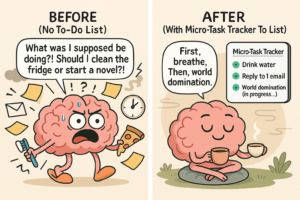Easy Meditation Exercises

Many of us struggle to find time for ourselves every day. But with some planning and a little effort, you can make time for your mind as well as your body. If you’re looking for tips on how to better manage your time and make the most of your days, meditation is one solution that deserves a second look. After all, it doesn’t take long to set aside 5-10 minutes to meditate regularly. That could be enough time for you to calm your mind and relieve stress if you have trouble falling asleep or staying focused during the day. Or, if you’re like most people, that might not be enough time in which to develop the discipline necessary to stay committed to regular practice over the long term. The bottom line: Many people find meditation challenging at first because they don’t frequently have access to peaceful surroundings or company while they relax. However, with a little bit of practice and patience, anyone can reap the benefits of regular meditation sessions.
Why is meditation important?
Meditation has been practiced for thousands of years as a path towards mindfulness, self-reflection, and self-understanding. In fact, word “meditation” comes from the Latin “meditari,” which means “to think.” Practiced correctly, meditation can be an effective tool for improving health and well-being. Research suggests that regular meditation can improve your mood, decrease anxiety and stress, and increase focus and concentration. It can also improve your outlook on life and reduce your risk of many diseases, including heart disease, high blood pressure, diabetes, and some cancers. Meditation may also increase your attention span and decrease your risk of developing certain mental health disorders such as depression and ADD/ADHD. It can also increase your lifespan, increasing your resistance to stress and extending your lifespan by an average of 3 years.
How to meditate
The most common form of meditation is called “concentration” and involves focusing on a single object or thought. You can also choose to focus on your breathing, a mantra (a word or phrase that you repeat), or a sound that resonates throughout your body. This may sound easy in theory, but in practice, many people find that focused attention is a much more challenging skill to cultivate. To maintain your focus during meditation, you must first learn to quiet your mind. The goal here is to block out external distractions and focus on your breathing. If you find yourself thinking about things other than breathing, try to redirect your attention back to your breathing. How do you quiet your mind? First, try to become aware of the thoughts in your head. Pay attention not just to the words but also to the tone and sentiment of the thoughts.
The benefits of meditation
Regular meditation has been shown to reduce your stress levels and improve your mental health. It can also help you develop better concentration, focus, and confidence in both your work and your relationships. These benefits make meditation an attractive option for many people. Meditation is an exceptionally safe and healthy pursuit, with few if any side effects and no pharmaceuticals required. It’s a low-cost, low-risk way to improve your health and quality of life.
How long does it take to feel the effects of meditation?
This really depends on the person and their current level of mental and physical health. You may feel some benefits almost immediately, or you may need to be consistent with practice for several weeks before starting to see results. It is important to remember that meditation is not a cure-all. It is not meant to fix problems or make you “feel better” immediately. It is a process that builds and strengthens the mind over time. Therefore, it is important not to expect to see results after only a few weeks of practice. It could be a few months before you feel a difference. If you are in a rush, you may want to think again about taking the slower and more gradual approach.
2 simple but effective forms of meditation
There are many types of meditation, and they can be divided into two main categories: concentration-based and open-focus types. Concentration-based meditation is the most common and focuses on mentally quieting the mind so that you can focus on a single object (such as your breathing) or a single thought (such as a prayer or a mantra). Open-focus meditation is less common but has several advantages over concentration-based forms of meditation. Open-focus meditation involves focusing on a sound, a picture, or an idea throughout your body, rather than on a single object or thought.
Conclusion
Meditation is an excellent way to improve your health and focus, relieve stress, and de-stress your mind. It’s easy to start, and it doesn’t require much time or effort. You can even incorporate meditation into your busy schedule if you make time for it. The benefits are many, and the only challenge is making time for it.




